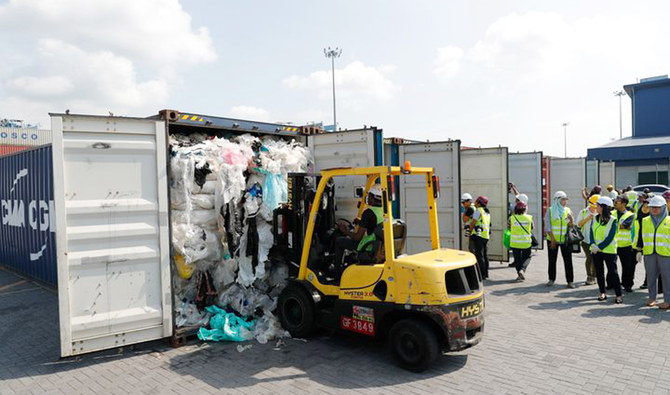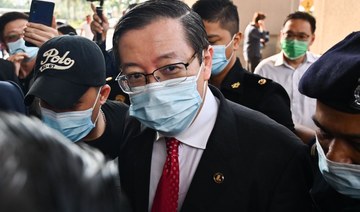KUALA LUMPUR: Malaysia’s post-lockdown new normal has led to a new recycling dilemma. While the country consumes up to 15 million disposable face masks a day, not all of it is properly utilized.
Malaysia is among the Southeast Asian countries that have battled plastic and hazardous waste over several years after China announced in 2017 that it would cease importing it from Western countries for recycling, which resulted in the flooding of Southeast Asia with trash that ended up in illegal landfills, causing environmental damage. While in 2019 Malaysia started sending back illegal plastic and mixed waste to its place of origin, sending back over 3,700 tons earlier this year to countries such as France, the US, the UK and Canada, the coronavirus disease (COVID-19) pandemic has resulted in the country generating its own nondegradable waste.
Dr. Theng Lee Chong, environment and waste management expert, said there is no recycling of single-use materials used in the production of masks and hand gloves in Malaysia.
“Face masks are made from mainly nonwoven fabrics, like polypropylene plastic (PP). Technically, it could be recycled but due to the high risk of infection, not all are being collected for recycling,” he told Arab News.
Theng said these waste materials are generated from two sources: Medical premises and nonmedical premises, such as homes and commercial institutions. He estimates that the country of nearly 33 million people currently consumes between 10 and 15 million face mask pieces a day.
When face masks and hand gloves come from medical institutions, they are classified as medical waste, the storage, transportation and disposal of which is strictly regulated, but the same does not apply to the protective gear used by the public.
HIGHLIGHTS
• Malaysia is among the Southeast Asian countries battling with plastic waste after China announced in 2017 that it would cease importing it from the West.
• The country’s recycling sector stakeholders see no need to sound alarm and suggest their industry is unlikely to be overwhelmed by pandemic-related waste.
“Normally it is disposed of in special treatment facilities, where the waste will be incinerated or treated using microwave technology. On the other hand, face masks and hand gloves generated from nonmedical premises, mainly by laypersons in daily life, are all disposed of into the municipal solid waste bins and end up being sent to municipal landfill sites in the country.”
While increased usage of face masks in general does not put too much burden on the environment, there are concerns regarding the PP used in their production. The materials are nondegradable and may remain for decades in landfills, which are still considered the right destination for them.
If dumped on the streets, he said, they can lead to bigger problems by clogging the drains, causing floods and adding to ocean pollution and environmental issues related to microplastics.
Malaysian recycling sector stakeholders, however, see no need to sound alarm bells and suggest the rise is unlikely to overwhelm their industry, which observed a decline in activity, Malaysian Plastic Recyclers Association Secretary Daniel Lim told Arab News.
“We not only face seizure of operations but have also faced a drop in demand for recycled resin due to the tremendous price reduction owing to global oil prices,” he said, adding that Malaysia’s controls on imported plastic waste have also significantly contributed to the decrease.













